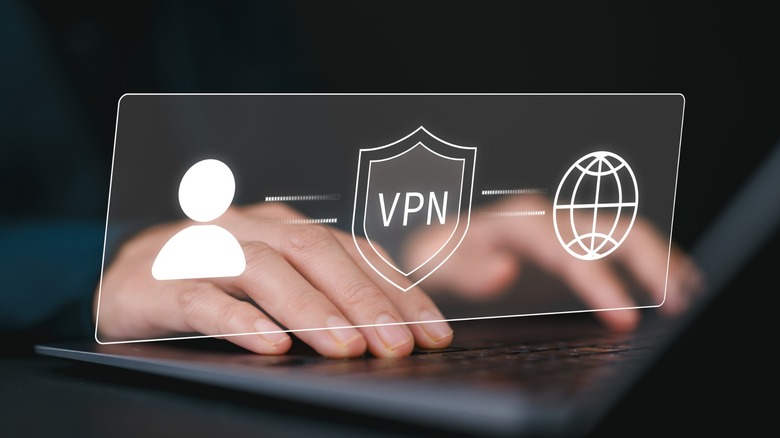What Does 'Military Grade Encryption' Really Mean On A VPN?
There are certain buzzwords you hear that immediately boost your confidence in the product that's being sold. You may have heard Apple describe its iPhone 15's aluminum enclosure as aerospace-grade, and you may also have heard some combat knife manufacturers claim that their knives are "standard-issue Navy SEAL knives." Something about stating that you are trusted by the U.S. government puts buyers and patrons at ease. However, as you may have guessed by now, it's nothing but tricky marketing.
It's no different when VPN providers claim to employ "military grade encryption." To see through the facade, you must first ask yourself: "What even is military grade encryption, and how is it different from normal industry standard?" The simple answer is that it isn't; it's just a fancy way to say it's AES-256. AES-256 encryption is the strongest widely used form of the Advanced Encryption Standard (AES), a symmetric cipher that has been around since the early 2000s. It's used everywhere, and not just by the military. Your bank uses it to secure online transactions, messaging apps use it to keep conversations private (via end-to-end encryption), and even encrypted ZIP files rely on the same math.
The U.S. government did approve AES-256 for securing Top Secret information, which is where the "military grade" label comes from, but there's no exclusive or secret algorithm that VPN providers have access to. In practice, when a VPN says it uses military-grade encryption, what it really means is that it's using the same off-the-shelf cryptography libraries available to any software developer, wrapped in a more intimidating phrase to make you feel safer.
What really makes AES-256 special?
At its core, it comes down to key length and resilience against brute-force attacks. AES is a symmetric cipher, meaning the same key is used to both encrypt and decrypt data. With AES-256, that key is 256 bits long, which translates to a keyspace of 2²⁵⁶ possible combinations. To put that in perspective, even with today's most advanced supercomputers, it would take longer than the age of the universe to try every possible key by brute force. That's why governments, banks, tech companies, and cloud service providers can all use it as a cornerstone in their cybersecurity systems.
The algorithm itself has also been battle-tested. Since it became the U.S. federal standard in 2001, AES has been subject to decades of cryptanalysis by some of the world's best mathematicians and security researchers. Despite countless attempts, no practical vulnerabilities have been found or publicly announced that would allow an attacker to break AES-256 outright. What this means for you as a VPN user is that when your connection is wrapped in AES-256, the encryption itself isn't the weak link.
However, and this is the most important takeaway, encryption strength doesn't equal total security. A VPN can tout AES-256 all day, but if the company is logging your browsing history, leaking your DNS queries, or using outdated tunneling protocols, the math won't save you. With how much information a VPN can have on you, it's extremely risky to use an unreliable one with or without "military-grade encryption." That's one of the few reasons you should never trust free VPN services.

